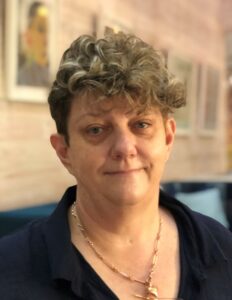
Since ANZSOG was founded in 2002, thousands of public servants have benefited from our programs and courses. Many have gone on to senior and highly influential positions in public services across Australia and Aotearoa New Zealand. To celebrate ANZSOG’s 20 years of working with our owner governments to strengthen the quality of public sector leadership in Australia, this series of profiles looks at the achievement of our alumni, why they chose the public sector as a career, their views on how to lead and the importance of having a high-quality values-driven public service.
Every step up the public service ladder brings its own challenges, but the shift to being a Deputy is one of the biggest in any public servant’s career.
It brings a mix of more responsibility, greater ambiguity, a more politically charged environment and the personal stresses that come with being a highly visible senior leader.
ANZSOG’s Deputies leadership program (DLP) is designed for newly appointed Deputies, with less than two years of experience in the role, and offers a targeted program that gives them a chance to think more broadly about their role and the personal qualities they need to succeed.
The program puts Deputies in the room with a range of experts and former practitioners for frank conversations about the challenges of the role.
Cathie O’Neill (below), Chief Operating Officer of Canberra Health Services, was a participant in the DLP in 2022. Relatively new to the Deputy role, she had come from a service and operational stream, with a background as a nurse.
“What I felt I needed from the Deputies program was a deeper understanding of the senior public service and of what it means to be working closely with government,” she said. “I’m managing a large operational portfolio with a billion-dollar budget and 6000 staff. In the ACT our proximity to government is pretty amazing, we have regular briefings and communication with minister’s offices. I needed to understand that part of my role better and how to be most effective in dealing with the ‘politics’ of my role.” She said that the most impressive thing about the program was how well it was targeted to the needs of the participants. “It is the first time I’ve done training that was totally targeted to my level. There was not a single part that I felt was a waste, or that I would have done differently.” 
The DLP’s co-directors are Kathryn Anderson, Partner at Cube Group and former Deputy Secretary in the Victorian Public Service and Martin Stewart-Weeks, Founder and Principal of Public Purpose and former Ministerial Chief of Staff and public servant.
They say that the design of the course was shaped by their own experiences in government, discussions with current deputies about the issues they were grappling with, input from academics, and informal discussions with people at more senior levels about what they wanted deputies to know.
“We started by asking: what would a group of newly minted deputies want to talk about?” Martin said.
“Deputies have a big span of control, are dealing a lot more with ministers and offices, and also working on really difficult problems. We needed to focus on what deputies require to perform the full suite of their responsibilities,” Kathryn said.
Martin said that the course was not about teaching or training in the traditional sense.
“What we offer is a series of conversations and spaces in which deputies could learn without necessarily being taught, using the experiences of people either currently or recently at senior levels of the public service.”
Ms O’Neill said the program was: ‘really varied and stimulating, I’m still able to recall different things that were said in a lot of the sessions, as well as the materials and notes we took away.”
“We had a session on public-designed services, which is something I’ve struggled with. My organisation was doing a deliberative consultation process at the time and it really changed my openness to that.”
“The sessions around trust were really impressive and worthwhile for me. Trust was always a big part of my work as a nurse, but I’d never thought about it from a government perspective. There were a few light-bulb moments for me where I realised what I was doing in my current role was about trust, or building trust.”
“The other benefit was hearing from senior, open and experienced presenters. For example, we had sessions with former WA Premier Geoff Gallop, and former senior public servant Robyn Kruk, to be able discuss things with them was a great opportunity to learn and to share experiences with other participants.
“I realised I’m not alone with my concerns about how to handle some of the things about the role: how hard the work is, your longevity at these positions and the personal toll it can take.
Ms O’Neill said that she had already recommended the Deputies leadership program to others, because it is targeted to where new deputies are at, and is a rare chance to step back from work and think about what it means to work in those senior positions.
“We got a lot of very useful, pragmatic advice about how to manage your responsibilities, how to fit all that work into those hours, how to remain refreshed and to respond to personal tipping points. These are conversations you don’t often have within your organisation,” she said.
“As you move up in the public service, you often have less space to reflect, and often you are focusing on supporting others in their development, and don’t have the focus on your own.”
“Also the peer group that you started your career with, or have worked with, may not be at this level and understand what it is like. It was great to develop a new set of ‘peers’ outside your own organisation and jurisdiction”
Guest presenters for the 2023 DLP are still being finalised but will include:
- Gordon de Brouwer, Secretary for Public Sector Reform
- Niki Vincent, Victorian Public Sector Gender Equity Commissioner (and former SA Equal Opportunity Commissioner)
- Robin Ryde, former Chief Executive of the UK National School of Government
- The Carlana Centre for Ethical Leadership
- Professor Michael Macaulay, expert on ethics, integrity and anti-corruption
- Alison Frame, Commonwealth Department of Veterans Affairs
- Cathy Taylor, SA Department for Child Protection
- John Bradley, Victorian Department of Energy, Environment and Climate Action
- Deborah Glass, Victorian Ombudsman
ANZSOG will be holding two iterations of the Deputies leadership program in 2023, both delivered in a blended format over three months with the first module in-person and modules 2 and 3 online. The program is designed to enable participants to learn from each other’s experiences and challenges. It will be highly interactive, with small group discussions forming a central part of the program delivery. The first iteration will be held in April and June 2023 and applications are now open, closing on 13 March.
Both iterations will be designed and presented by Kathryn Anderson and Martin Stewart-Weeks, who bring strong practical experience as well as leading contemporary thinking about public sector leadership.
Kathryn Anderson served as a Deputy Secretary in two departments in the Victorian Public Service, and has worked across jurisdictions in policy, program and corporate roles. She is now a Partner at Cube Group, a consultancy working exclusively with the public purpose sector. Kathryn is a Fellow of the Institute of Public Administration (IPAA) Victoria.
Martin Stewart-Weeks has been a Ministerial Chief of Staff, public servant in Canberra and Sydney and an advisor, facilitator and writer at the intersection of policy, public sector management and leadership and technology for the past 30 years. He held executive roles in the innovation and strategy group at Cisco Systems and is the founder and principal of Public Purpose Pty Ltd. With Simon Cooper, Martin is the co-author of Are We There Yet? The Digital Transformation of Government and the Public Sector in Australia (Longueville Media, 2019)
